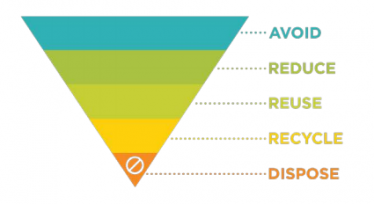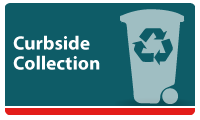Reducing Single-Use Items
The District of Squamish adopted the updated Single-Use Items Reduction Bylaw on Tuesday, February 15, 2022. The Bylaw regulates the distribution of single-use items in Squamish, including checkout bags, straws, polystyrene foam takeout containers and plastic utensils. The bylaw includes a fee scale as a means to encourage the use of reusable bags, while also reducing the consumption of all types of single-use bags.
This bylaw is now in effect.
Read our Single-Use Items FAQ.
Background
Local governments around the world are taking action to avoid the worst impacts of climate breakdown, and doing their part to A) call on senior levels of government for a more urgent, emergency response, and B) undertake actions within their local communities to reduce harmful environmental practices.
Other levels of Government are taking action as well, including the Provincial Government through CleanBC, and the Federal Government through their Zero Plastic Waste Plan.
In 2019, District of Squamish Council adopted a new Single-Use Item Bylaw in an effort to reduce single-use checkout bags and plastic straws. The Bylaw required all Squamish businesses to ask customers whether a bag is needed at the time of purchase and to sell any plastic, paper or reusable checkout bags to the customer according to an escalating fee schedule based on the estimated emissions impact of each bag type.
In July 2021, the BC Ministry of Environment and Climate Change Strategy released a Ministerial Order to outline how a Municipality may regulate four types of single-use items: checkout bags, plastic straws, plastic takeout utensils and foam takeout containers. These latest amendments to the Single-Use Item Bylaw were drafted in alignment with this Ministerial Order. Federal restrictions to prohibit or restrict some single-use plastic items are anticipated to be introduced. Provincial legislation is also expected in 2023. The federal regulations are expected to add more items to the list and make it easier for businesses by preventing the sale of banned items
Reducing single-use items is one initiative where the District of Squamish is focusing its efforts.
Project information
- Regulations for the reduction of the distribution of check-out bags and the unnecessary distribution of plastic straws were influenced by targeted stakeholder engagement.
- Discussions involved regulating single-use bags with fees, appropriate exemptions, as well as a grace period to permit the use of existing inventory, amongst other topics.
- The intention is to focus on up-front education for the general public, support for affected businesses, and support of existing single-use plastic reduction initiatives to encourage sustained shifts in business and consumer habits and avoid burdening enforcement resources.
- This is a step towards a phased approach to remove all single-use plastics in the community.
What are the regulations?
|
Material |
Regulation |
Fee |
|
Plastic Checkout Bag |
Not Permitted to be Distributed or Sold at checkout |
|
|
Paper Checkout Bag |
Must contain at least 40% recycled paper content, and has a reference printed on the outside of the bag to the applicable amount of recycled content with the word “recyclable”. |
$.075 |
|
Reusable Checkout Bag |
A bag with handles that is for the purpose of transporting goods from a Business and that is designed and manufactured to be capable of at least 100 multiple-time uses, and primarily made of washable fabric. |
$2.75 |
|
Plastic Utensils |
Not Permitted to be Distributed or Sold at checkout |
|
|
Polystyrene Foam Takeout Containers |
Not Permitted to be distributed or sold at checkout with the exception for the following purposes: (a)foam trays used for uncooked meat, poultry, seafood, or other food that requires further preparation; or (b)prepared food packaged off-site outside of the District of Squamish. |
|
|
Plastic Stir Sticks |
Not Permitted to be Distributed or Sold at checkout |
|
|
Plastic Straws |
Not Permitted to be Distributed or Sold at checkout however, plastic single-use straws will always be made available to those who require them for health, medical or disability reasons. A plastic, bendable straw must be provided by the business in this case upon request by any customer. |
*If the Business reasonably deems that compliance is not feasible because of: i) the Customer’s disability or medical reasons; or ii) financial hardship upon the Customer, a Business may provide or sell plastic or paper bags.
**See the exemptions in the FAQ or in the bylaw.
What are single-use items?
Single-use items generally refer to plastic products that are considered disposable and only used once before they are recycled or thrown away. This includes plastic bags, straws, utensils, take-out containers, cups, Styrofoam containers and more. Since early 2020, we have started to see other types of Single-Use Items as well as increase in usage as well, such as face masks and surgical gloves.
Why reduce and regulate single-use items?
While some single-use items are necessary for certain situations, such as masks or disposable gloves, other single-use items can easily be eliminated or changed to a different material with little impact on users. The District of Squamish is aiming to reduce and regulate the latter.
There are multiple impacts single-use items have on the District’s waste ecosystem, including the increased volume in the Squamish Landfill, clogging of catch basins, litter collection, contaminating recycling streams, filling streetscape garbage bins and debris in the surrounding environment. There is a financial cost associated with all of these impacts, which is a cost to taxpayers.
Of additional concern is that these materials quickly become waste after only one or a few uses. The free provision of single-use materials represents a systemic business/consumer transaction that privileges short-term convenience over long-term sustainability. The current overuse of plastic checkout bags and the unnecessary use of plastic drinking straws in our community is unsustainable over the long term and is inconsistent with the values of Squamish residents, as presented in the Official Community Plan.
The District of Squamish’s aim is to reduce the use of single-use items where alternatives are readily available and have little impact on the user.
While some local businesses have already taken action to reduce impacts (i.e. fees on bags, straws are optional or not provided at all, discounts for bringing a reusable cup), the current volume and frequency of disposable checkout bags and straw transactions in our community continue. A wholesale shift to sustainable, reusable bags and keeping plastic straw use to only when it is necessary will reduce landfill volumes, pollution and litter risks in our community. Further, this shift will only be successful if we avoid any unintended shift to excessive and damaging consumption of paper or reusable bags or biodegradable or compostable straws, and instead help businesses and residents to change their habits.
What about paper bags?
Research suggests that banning single-use plastic bags could lead to increased consumption of other types of bags, such as paper and polypropylene bags which have higher greenhouse gas emissions than plastic due to the way in which they are manufactured and transported. In addition, paper can produce methane (a potent greenhouse gas) when breaking down. As a result, it is estimated that the production of paper bags has three times the environmental and greenhouse gas impact than the production of plastic bags. Therefore, it is crucial to reduce the consumption of all single-use bags, not just plastic.
Regulation objectives
The main outcome of regulating single-use items is that fewer single-use items would require recycling or disposal in the Landfill and a reduction of these items littered in the environment. The focus is to maximize the avoidance, reduction and reuse of these products, as per the pollution prevention hierarchy illustrated below.
Another expected outcome is that residents realize that a change in behaviour is required from our current way of thinking. While this initiative in and of itself will not solve all our issues, it is the thin edge of the wedge that will help to begin to change human behaviour and challenge what is acceptable, with the hope of moving people away from complacency to action.

Figure 1: Pollution Prevention Hierarchy
Local waste management and recycling of single-use plastics
It is estimated that around 4[1] million single-use plastic check-out bags are provided to Squamish residents by local businesses each year and that Canadians throw out about 57 million straws[2]every day.
The 2020 waste composition study conducted at the Squamish Landfill shows that over 1,950 tonnes of plastic (or approximately 18.3% of the total tonnage at the landfill) was disposed of in that year. Of which, around 113 tonnes were single-use items which are now regulated under the Single-Use Item Bylaw. [3]
Other Levels of Government’s Action on Single-Use Items
Both the Federal and Provincial Governments are also working on enacting regulations to reduce or replace single-use items.
Questions?
If you are a business or resident with questions about how the Squamish Single-Use Item Bylaw will affect you, please contact zerowaste@squamish.ca
Learn more:
- View the June 25 Report to Council
- View the September 17 Presentation to Council
- View the September 17 Report to Council
[1] An estimated 200 plastic check-out bags per capita, Plastics Oceans Foundation: www.plasticoceans.ca/facts/
[2] https://www.cbc.ca/news/canada/british-columbia/plastic-straws-styrofoam-garbage-vancouver-1.4605754
[3] Because the percentages are calculated by weight, it is difficult to know how many straws can be attributed to the category of “durable products”. Within the waste composition categories the consultants were not requested to evaluate the frequency of single-use plastic bags or other single-use items specifically.

